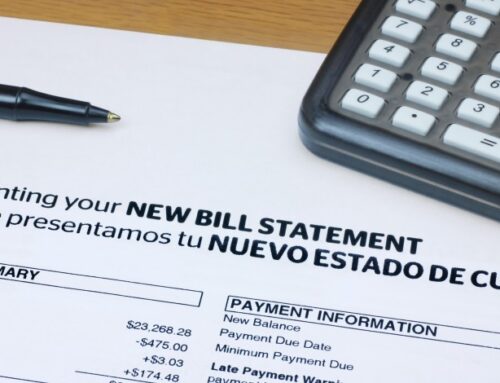Financial scams are on the rise, according to the Federal Trade Commission, and scammers often look for vulnerable communities to exploit. Unfortunately, the Latino community in the United States has become a common target for fraudsters who use fear, language barriers, and misinformation to steal money and personal information.
Knowing how these scams work and how to protect yourself can help keep your hard-earned money safe.
Why Scammers Target the Latino Community
There are several reasons why scammers often focus on Latinos in the U.S. For one, language can be a barrier. Many scammers pose as bilingual government workers or company representatives, speaking in Spanish to build trust and credibility. This tactic can catch people off guard and make them feel they have to comply right away.
Immigration status is another pressure point. Scammers may pretend to be from U.S. Immigration and Customs Enforcement (ICE), U.S. Citizenship and Immigration Services (USCIS), or other agencies, threatening deportation or legal trouble unless the victim pays a fake fine immediately. These scare tactics are powerful because they prey on fear and uncertainty, especially for newcomers who may not know their rights or how official agencies actually work.
Additionally, many Latino families send remittances back home to help loved ones, making them targets for fake money transfer services or scams involving “family emergencies” where someone pretends to be a relative in trouble. Fraudsters may also exploit cultural respect for elders and authority figures by posing as law enforcement, lawyers, or trusted community leaders.
By understanding why scammers choose these tactics, you can be more prepared to spot suspicious requests and help protect your community from financial harm.
Common Scams to Watch Out For
Scammers are clever and always finding new angles to fool people, but some schemes come up again and again in Latino communities. Understanding how they work helps you spot the warning signs before it’s too late.
Here are more details on the most common scams:
Imposter scams
These are some of the most aggressive frauds. The scammer might say they’re from the IRS and that you owe back taxes, or from immigration services saying your paperwork is incorrect and you must pay a fee immediately. Sometimes they pose as local police, threatening arrest if you don’t pay a fake fine.
Scammers often speak Spanish and use official-sounding titles or fake badge numbers to appear legitimate. They may demand payment right away by wire transfer, prepaid debit card, or gift card — all red flags.
Fake lottery or prize scams
These scammers reach out by phone, text, email, or even mail. They say you won a big lottery, car, or sweepstakes, but you must pay taxes, shipping, or processing fees upfront. Once you send the money, the scammer vanishes, and no prize ever arrives.
Debt collection and loan scams
In this scam, fraudsters pretend to be debt collectors trying to collect old loans or medical debts. They may have some of your real information, like your address or parts of your Social Security number, which makes them sound real. They often demand payment immediately and threaten lawsuits, jail time, or wage garnishment.
Some scammers offer fake loans, promising quick approval but demanding an upfront “processing fee,” then they disappear with your money.
Job and work-from-home scams
Many people in Latino communities look for side jobs to support family here and abroad. Scammers exploit this by offering fake work-from-home opportunities. They may promise big money doing simple tasks like assembling products, reshipping packages, or stuffing envelopes. But they require you to pay for “training materials” or equipment upfront. Once they get your money, they cut off contact.
Immigration and legal scams
Some scammers pretend to be immigration lawyers or consultants who promise to speed up your papers or get you a visa for a fee. Others pose as notarios, which means a licensed lawyer in Latin America, but is not the same in the U.S.
Unscrupulous notarios may take your money without providing real legal help, leaving you at risk for bigger legal problems later.
Phishing calls, texts, and emails
Scammers send emails or text messages that look like they’re from your bank, credit card company, or a service like WhatsApp. The message may say there’s a problem with your account or an urgent security issue. It asks you to click a link and enter your login details or other sensitive information. Once you do, scammers can steal your identity and access your accounts.
Family emergency or ‘grandparent’ scams
This cruel scam preys on people’s love for family. The scammer pretends to be a family member (often a grandchild) in trouble. They say they’ve been arrested, had an accident, or are stuck in another country and need money immediately. They may beg you not to tell anyone, saying they’re embarrassed or afraid.
Scammers can even use social media to learn real names and details to sound convincing.
Fake government assistance scams
Fraudsters may offer fake help with benefits like housing aid, SNAP (food assistance), or pandemic relief payments. They promise extra benefits or faster approval if you pay a “processing fee.” Legitimate government programs never ask for money to speed things up.
How to Protect Your Money and Information
Scammers succeed when people act quickly without asking questions. Slow down, stay skeptical, and follow these practical steps to keep your money and identity safe:
1. Take your time and verify
If you get an unexpected call, message, or email demanding money or personal information, stop and think. Hang up or delete the message. Find the official phone number for the agency, company, or family member and call directly. Never use a phone number the caller gives you, because scammers create fake websites and phone lines.
2. Use safe payment methods
Never pay strangers or people you don’t fully trust with gift cards, wire transfers (like Western Union or MoneyGram), prepaid debit cards, or cryptocurrency. These payment methods are nearly impossible to trace or get back once sent. Real businesses, government offices, and legitimate charities will never ask for payment this way.
3. Protect your documents
Keep your Social Security card, immigration papers, and other important documents in a safe place. Don’t carry them in your wallet unless you absolutely need them. Never share your Social Security number, bank account, or credit card numbers with anyone who contacts you first, whether by phone, text, or email.
4. Watch out for links and attachments
If you receive a suspicious email or text, don’t click on any links or open attachments, even if it looks like it’s from your bank or a trusted company. These links can install malware or take you to fake websites designed to steal your information.
5. Check your accounts regularly
Review your bank and credit card statements every month. Look for any charges you don’t recognize, even small ones. Scammers often start with a small test charge to see if the account is active. Also, check your credit reports at least once a year at AnnualCreditReport.com.
6. Be cautious on social media
Limit what you share publicly. Scammers can use photos and posts to learn about your family and create convincing lies. Don’t accept friend requests from people you don’t know, and talk with older relatives about watching for fake friend requests.
7. Report scams right away
If you think you’ve been scammed or see a suspicious message, act fast. Contact your bank to freeze your account if needed. Report the scam to the Federal Trade Commission at ReportFraud.ftc.gov and your local police department. If your identity was stolen, consider placing a fraud alert or credit freeze with the credit bureaus.
If you have an account with Arizona Central Credit Union, you can report fraud by calling our Solutions Center during regular business hours at (602) 264-6421 or toll-free at (866) 264-6421 or by visiting any branch.
Let AZCCU Help You Empower Yourself and Your Community
Knowledge is power. Talk with family and friends about common scams so they can protect themselves too. Many organizations offer resources in Spanish to help Latino families stay informed. Staying alert and informed is the best defense against scammers who thrive on fear and confusion.
Protect your money. Protect your future. Learn more about the security measures AZCCU offers you. We can also offer you loans and savings plans to widen your horizons. Contact us online or call (866) 264-6421.




